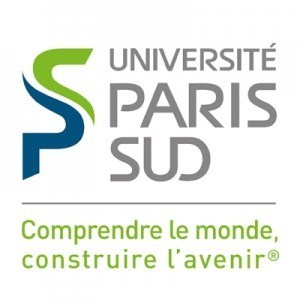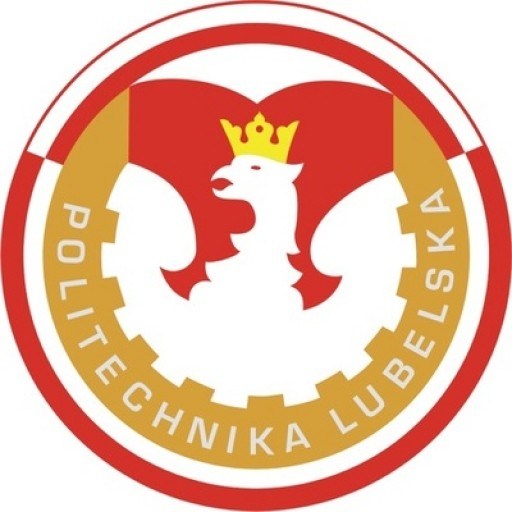Photos of university
The Master’s degree program in Wireless Integrated Circuits and Systems at Université Grenoble Alpes is a comprehensive and cutting-edge curriculum designed to prepare students for advanced careers in the rapidly evolving field of wireless technology. This program combines theoretical foundations with practical skills, enabling graduates to contribute effectively to the development of innovative wireless communication devices and systems. Students will explore the principles of integrated circuit design, RF and microwave engineering, signal processing, and system architecture, with a particular focus on the challenges and opportunities presented by wireless applications. The program emphasizes interdisciplinary learning, allowing students to understand the entire ecosystem in which wireless integrated circuits operate, including antennas, transceivers, and digital processing units. Throughout the course, students will have access to state-of-the-art laboratories and research facilities, fostering hands-on experience through projects, internships, and collaborations with industry partners. The curriculum also covers topics such as low-power circuit design, miniaturization techniques, and the integration of wireless components onto single chips, preparing students to address real-world engineering problems. Graduates of this program will be equipped with the technical expertise and innovative mindset needed to lead development teams, innovate in R&D, and contribute to the advancement of wireless communication technologies across various sectors, including telecommunications, IoT, consumer electronics, and beyond. With a strong emphasis on research and innovation, the program encourages students to pursue further academic pursuits or to enter highly competitive roles in the industry. Its affiliation with Grenoble’s vibrant technological ecosystem provides students with unique opportunities for professional networking, industry collaborations, and participation in cutting-edge research projects. Whether aiming for careers in academia, research institutions, or high-tech industries, graduates will find themselves well-prepared and highly sought after in the global job market.
The "Wireless Integrated Circuits and Systems" master's program at Université Grenoble Alpes is a comprehensive and specialized curriculum designed to equip students with advanced knowledge and hands-on skills in the field of wireless communication technologies. This program focuses on the design, development, and optimization of integrated circuits and systems used in modern wireless devices and networks. Throughout the course, students explore a wide range of subjects including radio frequency (RF) circuit design, digital signal processing, antenna design, wireless network protocols, and system integration techniques. The program emphasizes practical experience through laboratory work, project-based learning, and collaborations with industry partners, enabling students to apply theoretical concepts to real-world challenges. Graduates of this program will gain expertise in the latest wireless technologies such as 5G, IoT (Internet of Things), and emerging communication standards. They will be well-prepared for careers in research and development, product engineering, and system design within the telecommunications and semiconductor industries. The program also offers opportunities for students to engage in cutting-edge research projects, attend international conferences, and collaborate with leading experts in the field. With its strong emphasis on innovation, technical excellence, and industry relevance, the "Wireless Integrated Circuits and Systems" master's program at Université Grenoble Alpes aims to prepare students to become leaders in the rapidly evolving landscape of wireless communications technology.
1st year of Master's degree:
The prospective student should:
- have completed at least three full years of University studies (180 ECTS)
2nd year of Master's degree:
The prospective student should:
- have completed at least four full years of University studies (a first year of Master's degree, bachelor or equivalent degree with 240 ECTS)
- have followed basic classes in Electronics and Radio Frequency
- prove an English proficiency with CEFR (B2), TOEFL (IBT 87-109), IELTS (5.5-6.5), TOEIC (785-945) or equivalent. Students coming from English-speaking countries or/and who had a University curriculum in English are considered proficient enough. If you don't have the opportunity to take the test in your home University, an English test is organized during the first week of the classes, to check the level of everyone.
The financing of the Wireless Integrated Circuits and Systems program at Université Grenoble Alpes is primarily supported through a combination of public funding, university resources, and student fees. As a European higher education institution, Université Grenoble Alpes benefits from regional, national, and European Union financial programs aimed at fostering advanced research and technological innovation in the field of wireless electronics. The program receives funding through grants allocated by the French Ministry of Higher Education and Research, which supports both the educational infrastructure and research activities associated with the program. Additionally, the university collaborates with industrial partners and technology companies, which sometimes provide financial support, internships, or project sponsorships that contribute to the overall funding landscape.
Students enrolled in the program are expected to pay tuition fees, which vary based on the student's residency status. European Union students typically benefit from lower fees compared to international students coming from outside the EU. The university also offers scholarships, grants, and financial aid options for eligible students, which can help offset the costs of tuition and living expenses. These financial aid opportunities are often funded by government initiatives, regional development funds, or research grants aimed at promoting technological education and innovation.
Furthermore, students may have access to external funding options such as Erasmus+ grants, especially if part of exchange or mobility programs. The university’s active involvement in European research networks enhances opportunities for students to participate in funded projects, sometimes receiving stipends or scholarships as part of their research activities. Overall, the financing of the Wireless Integrated Circuits and Systems program is designed to facilitate access to high-quality education and cutting-edge research for students while fostering partnerships with industry and government agencies to ensure the ongoing development and sustainability of the program.
The Wireless Integrated Circuits and Systems program at Université Grenoble Alpes is a specialized degree designed to prepare students for innovation and leadership in the rapidly evolving field of wireless communication technologies. This program integrates multidisciplinary knowledge in electrical engineering, microelectronics, signal processing, and embedded systems, focusing on the design, development, and application of integrated circuits and systems for wireless communication. Students engage with cutting-edge topics such as RF design, wireless protocols, antenna technology, integrated circuit fabrication, and system-on-chip (SoC) architectures. The program emphasizes practical skills alongside theoretical understanding, offering laboratory sessions, hands-on projects, and industry collaborations to ensure graduates are well-equipped to meet the demands of the telecommunications industry.
Situated in Grenoble, a hub for microelectronics and information technology, the program benefits from close links with leading industry players and research laboratories. This environment fosters innovation and provides students with opportunities for internships and collaborative research projects, enabling them to gain real-world experience. The curriculum is regularly updated to reflect the latest trends and technological advances, including developments in 5G/6G wireless networks, Internet of Things (IoT), and wearable technology. Students also explore aspects of digital signal processing, error correction, energy-efficient circuit design, and miniaturization of components.
Graduates from this program are highly sought after by companies working in wireless communications, consumer electronics, automotive systems, healthcare technology, and aerospace. The program aims to produce versatile engineers capable of designing integrated radio-frequency systems, developing new wireless devices, and contributing to the advancement of communication infrastructures. The multidisciplinary approach ensures that students develop not only technical expertise but also problem-solving skills, innovation mindset, and teamwork abilities, preparing them for careers in research, development, and industrial leadership.
The program is delivered in English, inviting international students and fostering a global perspective. It combines coursework, project work, internships, and sometimes master’s thesis research. By the end of the program, students possess a comprehensive understanding of wireless integrated circuits and systems, enabling them to contribute effectively to technological developments in this dynamic field. The program’s strong connections with academia and industry at Grenoble guarantee a cutting-edge education aligned with current and future market needs, helping students to become pioneering engineers in wireless technologies.







